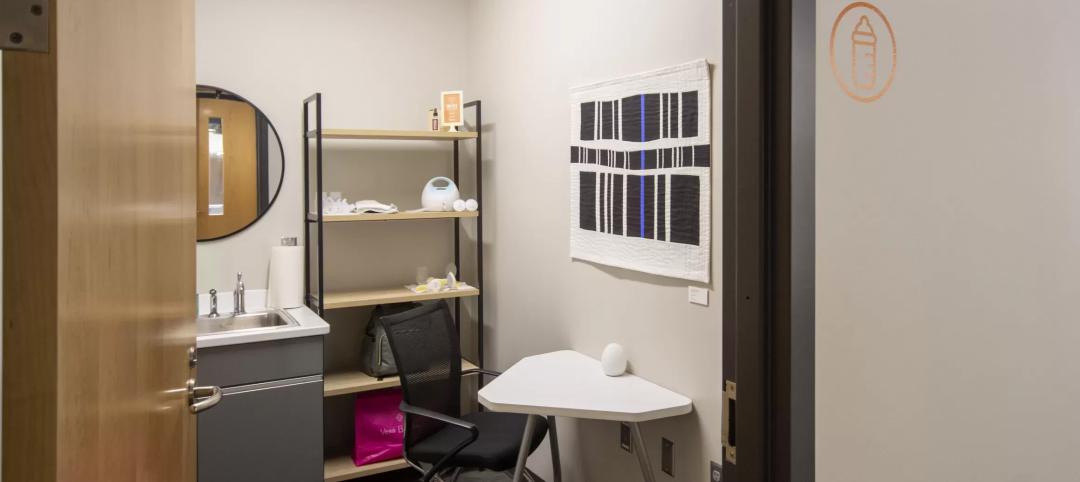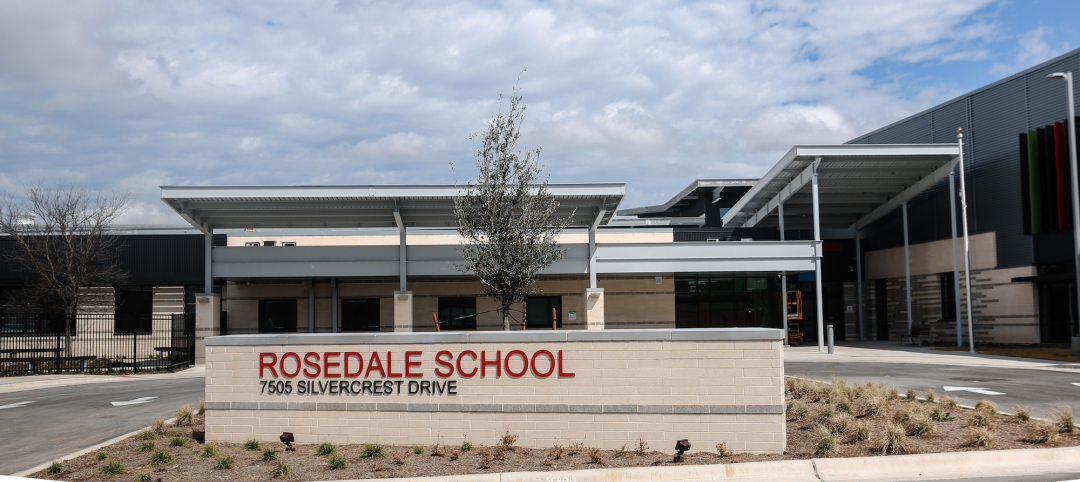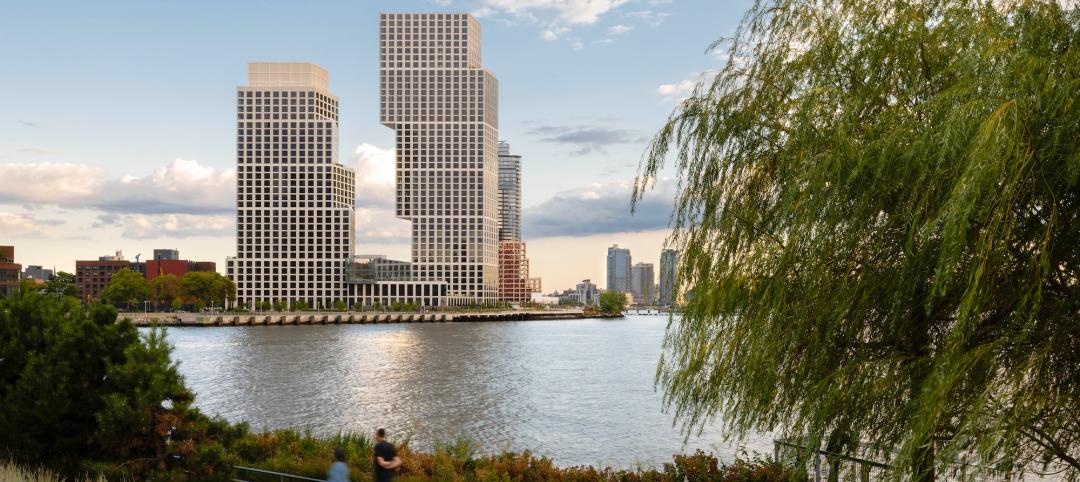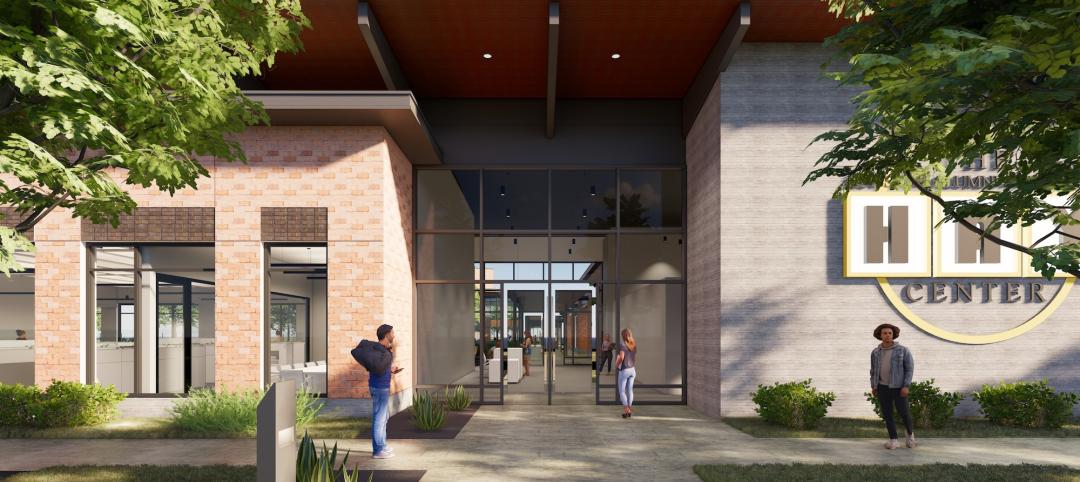A McDonald's restaurant in Riverside, Calif., was recently awarded LEED Gold certification, the first McDonald's west of the Mississippi, and only the fourth in the U.S., to receive the designation.
"This gold certification from LEED underscores our rigorous sustainability initiatives," said Candace Spiel, McDonald's owner/operator. "
This restaurant is owned and operated by Tom and Candace Spiel and stood as a McDonald's for 44 years. In 2010, the restaurant was completely rebuilt and reopened on October 14, 2010 containing a host of green features such as low-flow plumbing fixtures, recycled denim insulation inside the building, native drought-tolerant plants to reduce water consumption by landscape and solar panels.
The restaurant also includes an interactive touch-screen display for visitors to learn about the building's features, environmental sustainability, and how individuals can reduce their carbon footprint.
The University Avenue McDonald's has achieved the following water and energy-savings.
- The restaurant's solar array has generated electrical energy which saves approximately 8,950 kWH per month of utility usage, which is equal to the power usage of 13 average Riverside homes for one month. Increased efficiencies such as low-E glass windows and LED lighting helped realize an additional energy savings of 2,870 kWH per month, which is equal to an additional four Riverside homes.
- Saved approximately 250,000 gallons of water, which is equal to the water of eight 20 ft x 40 ft swimming pools.
- Due to permeable pavers, about 283,000 gallons of rainfall water is diverted from storm water system per year, which is equal to the water of nine 20 ft x 40 ft swimming pools.
"We are delighted that this local McDonald's has taken such significant measures to conserve our natural resources while educating residents about the importance of energy conservation," said Ron Loveridge, mayor of Riverside.
Beginning as manager trainee and crewperson, respectively, over the last 40 years Tom and Candace have risen within the ranks of the McDonald's system to own and operate nine McDonald's restaurants in the Inland Empire located in Chino, Ontario, Montclair, Pomona, Riverside and Rubidoux. Both Tom and Candace are members of the McDonald's Operators' Association of Southern California, which is comprised of more than 120 small business owners who operate more than 600 McDonald's restaurants in the counties of Los Angeles, Orange, Riverside, San Bernardino, and Ventura. BD+C
Related Stories
Market Data | Aug 1, 2023
Nonresidential construction spending increases slightly in June
National nonresidential construction spending increased 0.1% in June, according to an Associated Builders and Contractors analysis of data published today by the U.S. Census Bureau. Spending is up 18% over the past 12 months. On a seasonally adjusted annualized basis, nonresidential spending totaled $1.07 trillion in June.
Healthcare Facilities | Aug 1, 2023
Top 10 healthcare design projects for 2023
The HKS-designed Allegheny Health Network Wexford (Pa.) Hospital and Flad Architects' Sarasota Memorial Hospital - Venice (Fla.) highlight 10 projects to win 2023 Healthcare Design Awards from the American Institute of Architects Academy of Architecture for Health.
Office Buildings | Aug 1, 2023
Creating a nurturing environment: The value of a mother’s room in the workplace
Since becoming an architect, Rebecca Martin of Design Collaborative has drawn a mother’s room into numerous projects. But it wasn't until she became a mom that she fully appreciated their importance in the workspace.
Digital Twin | Jul 31, 2023
Creating the foundation for a Digital Twin
Aligning the BIM model with the owner’s asset management system is the crucial first step in creating a Digital Twin. By following these guidelines, organizations can harness the power of Digital Twins to optimize facility management, maintenance planning, and decision-making throughout the building’s lifecycle.
K-12 Schools | Jul 31, 2023
Austin’s new Rosedale School serves students with special needs aged 3 to 22
In Austin, the Rosedale School has opened for students with special needs aged 3 to 22. The new facility features sensory rooms, fully accessible playgrounds and gardens, community meeting spaces, and an on-site clinic. The school serves 100 learners with special needs from across Austin Independent School District (ISD).
MFPRO+ New Projects | Jul 27, 2023
OMA, Beyer Blinder Belle design a pair of sculptural residential towers in Brooklyn
Eagle + West, composed of two sculptural residential towers with complementary shapes, have added 745 rental units to a post-industrial waterfront in Brooklyn, N.Y. Rising from a mixed-use podium on an expansive site, the towers include luxury penthouses on the top floors, numerous market rate rental units, and 30% of units designated for affordable housing.
Affordable Housing | Jul 27, 2023
Houston to soon have 50 new residential units for youth leaving foster care
Houston will soon have 50 new residential units for youth leaving the foster care system and entering adulthood. The Houston Alumni and Youth (HAY) Center has broken ground on its 59,000-sf campus, with completion expected by July 2024. The HAY Center is a nonprofit program of Harris County Resources for Children and Adults and for foster youth ages 14-25 transitioning to adulthood in the Houston community.
Hotel Facilities | Jul 27, 2023
U.S. hotel construction pipeline remains steady with 5,572 projects in the works
The hotel construction pipeline grew incrementally in Q2 2023 as developers and franchise companies push through short-term challenges while envisioning long-term prospects, according to Lodging Econometrics.
Sustainability | Jul 27, 2023
USGBC warns against building energy code preemptions, rollbacks
In a recent editorial, the USGBC cited a growing number of U.S. state legislators who are “aiming to roll back building energy code standards and/or preempt local governments from advancing energy-efficient building codes.”
Resiliency | Jul 27, 2023
'Underground climate change' can damage building foundations, civil infrastructure
A phenomenon known as “underground climate change” can lead to damage of building foundations and civil infrastructure, according to a researcher at Northwestern University. When the ground gets hotter, it can expand and contract, causing foundations to move and sometimes crack.

















